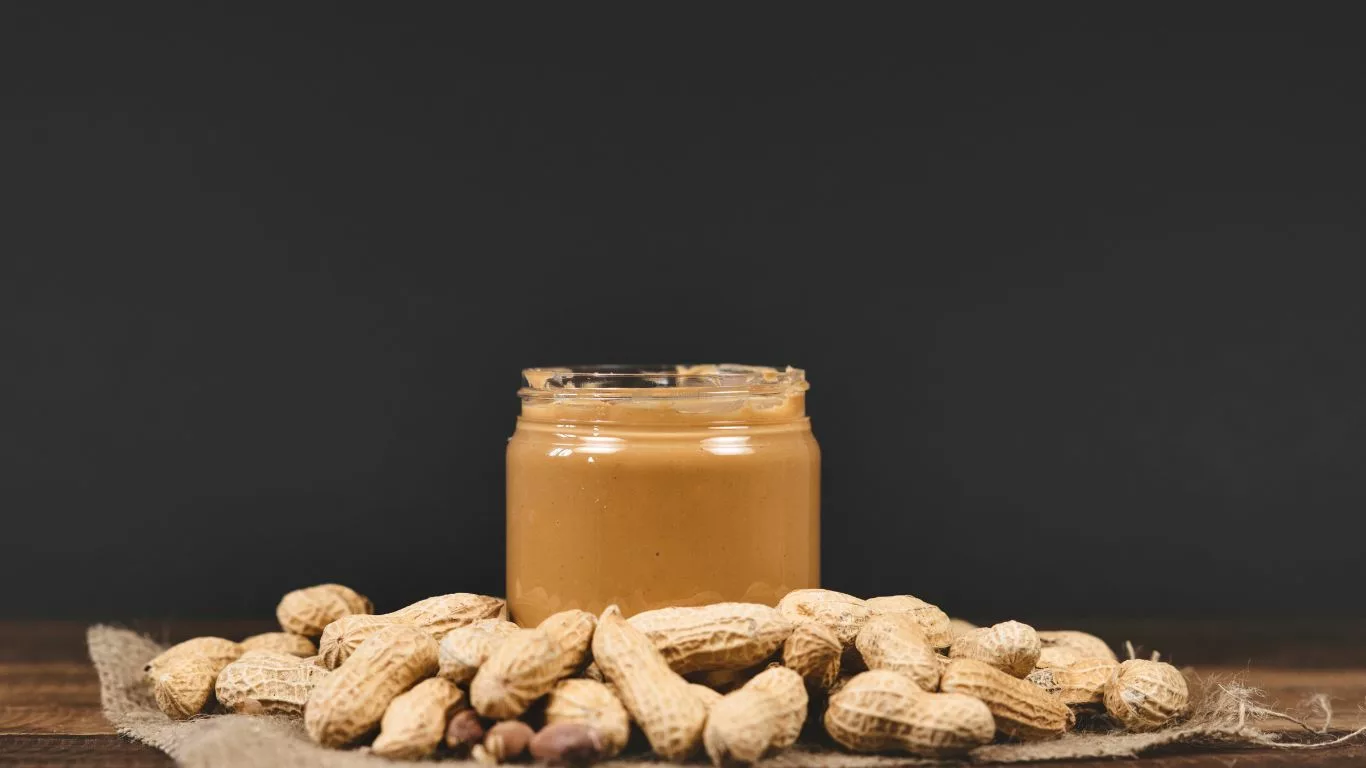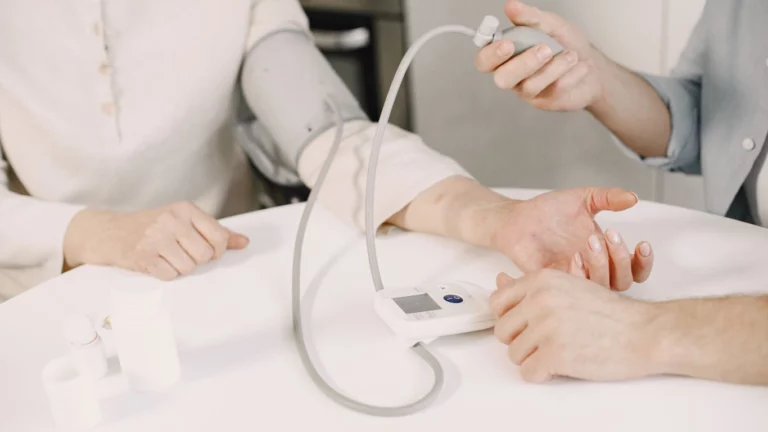Is Peanut Butter Bad for Acid Reflux? Find Out How to Enjoy it Without Pain
Peanut butter has always been my go-to snack—spread on toast, blended into smoothies, or even just by the spoonful. But after a few late-night reflux episodes, I had to ask myself the question so many others wonder: Is peanut butter actually bad for acid reflux? Turns out, the answer isn’t as straightforward as I hoped. If you’re like me—trying to balance comfort food cravings with a sensitive digestive system—you’re in the right place. Let’s break it down.
Why Peanut Butter Gets Blamed for Acid Reflux

Let’s be honest, peanut butter has a thick, sticky texture that feels heavy, especially when eaten alone or in large amounts. From a digestive standpoint, that heaviness can spell trouble for some people dealing with acid reflux or GERD. So why does this beloved spread sometimes stir up such uncomfortable symptoms?
Fat Content Matters
Peanut butter is naturally high in fat—even the “healthy” kind. And according to Mayo Clinic, high-fat foods can relax the lower esophageal sphincter (LES), the muscle that keeps stomach acid where it belongs. When that muscle loosens, acid has a sneaky way of creeping up the esophagus, leading to heartburn or that burning sensation we know too well.
Texture and Portion Size
Peanut butter’s thick consistency slows digestion, which can increase pressure in the stomach—another trigger for reflux. Plus, it’s super easy to overdo it. Two tablespoons might not sound like much until you realize your morning smoothie or PB-banana toast had more like four.
Some People Are Just More Sensitive
For others, even a small amount of peanut butter can bring on symptoms. Everyone’s digestive tract has its quirks. If you’ve experienced post-snack heartburn, you’re definitely not alone. One study published in the American Journal of Gastroenterology found that dietary fat was significantly associated with symptom severity in GERD patients.
Is Peanut Butter Really Off-Limits for GERD?

Not necessarily. Here’s the part that gave me hope—not all peanut butters (or experiences) are the same. Some people tolerate it just fine, especially when paired with low-acid, GERD-safe foods and eaten in moderation. It’s a matter of making it work for your gut, not cutting it out completely.
Choosing the Right Type of Peanut Butter
- Natural peanut butter: No added sugars, hydrogenated oils, or preservatives that might aggravate reflux.
- Low-sodium options: Salt can be irritating for some people with reflux.
- Single-ingredient peanut butter: Just peanuts—simple and easier on digestion.
Steer clear of flavored varieties like chocolate or honey-roasted spreads. Those tend to contain added sugars and oils, both of which can throw your digestion out of balance. You might also consider alternatives like almond butter or sunflower seed butter, which some people find easier to tolerate. Here’s how almond butter stacks up in comparison.
Timing and Food Pairings Make a Difference
Want to enjoy peanut butter without paying for it later? Timing is everything. Avoid eating it close to bedtime, when reflux is more likely to flare up. Instead, try:
- Pairing it with low-acid fruits like bananas or apples
- Spreading it on whole grain toast rather than white bread
- Adding a small spoonful to oatmeal (which is great for acid reflux, by the way)
Combining peanut butter with fiber-rich, alkaline foods can buffer its effects. And always stick to that golden rule—moderation.
How I Figured Out My Peanut Butter Tolerance

I’ll admit—I wasn’t thrilled at the thought of giving up peanut butter. So I started paying closer attention to how I felt after different meals. A slice of peanut butter toast with a warm cup of chamomile tea? Totally fine. But two PB&J sandwiches in one sitting? Heartburn city.
This kind of trial-and-error is key. Just like I did, consider keeping a GERD symptom tracker to notice patterns and triggers. Over time, it becomes easier to spot what works for your body and what doesn’t.
Helpful Tip: Avoid Eating on an Empty Stomach
If you’ve ever scarfed down peanut butter as your first meal after a long fast, you might have noticed it doesn’t sit well. That’s because eating on an empty stomach can cause acid to build up rapidly, especially with dense or fatty foods. Try eating something lighter first, then layering in peanut butter slowly.
Expert Insights and What Science Says

Medical experts, including those at Cleveland Clinic, caution that high-fat snacks like peanut butter should be limited if they worsen your symptoms. But they also stress that every GERD case is unique.
What works for you may not work for your friend—or your favorite wellness influencer. That’s why personalized nutrition is crucial when dealing with reflux. If you’re still unsure, it’s always worth talking with a dietitian who specializes in gastrointestinal health or a gastroenterologist who understands your symptoms fully. A tailored diet plan can make all the difference.
To explore how diet plays a major role in acid reflux and long-term GERD management, read our GERD Diet Plan that Actually Works.
Peanut Butter vs. Other Nut Butters: Which Is Better for Reflux?

When I first started adjusting my diet for reflux, I quickly found myself down a rabbit hole of nut butter alternatives. Almond butter, cashew butter, sunflower seed butter—you name it, I tried it. But are they really better for GERD than peanut butter? Let’s compare.
Almond Butter
Almond butter is a popular pick because it’s slightly lower in saturated fat and often easier on the stomach for some people. Plus, it’s less dense than peanut butter, making it feel “lighter” after eating. According to the Harvard Health Blog, almonds are rich in healthy monounsaturated fats and may support heart health—but they can still be reflux triggers if eaten in large amounts.
Sunflower Seed Butter
This one surprised me. Sunflower seed butter is pretty neutral in taste and doesn’t seem to weigh me down the way peanut butter sometimes does. It’s also a great option for those with nut allergies. While it’s still high in fat, the type of fat may be easier to digest for some people. I found that pairing a small spoon of sunflower butter with rice cakes worked well on busy mornings.
Cashew Butter
Cashew butter is creamier but tends to be a bit higher in sugar depending on the brand. It can be well-tolerated, but again—moderation is key. If you’re exploring GERD-friendly spreads, look for unsweetened and salt-free versions across the board.
Here’s a quick comparison chart to help you see the differences:
- Peanut Butter: Moderate fat, affordable, can trigger symptoms in some
- Almond Butter: Lighter texture, lower in saturated fat, often better tolerated
- Sunflower Butter: Nut-free, good alternative, similar fat profile
- Cashew Butter: Creamy, often sweetened, mixed reflux response
Tips for Enjoying Peanut Butter Without Regret

Peanut butter doesn’t have to be the enemy—it just has to be handled with care. Here’s what helped me reduce symptoms without giving it up entirely:
Portion Control Is Everything
A small amount—one tablespoon—is usually enough to get the taste without overloading the stomach. I use it as a dip for apples or a small drizzle on my oatmeal rather than making it the main event.
Watch the Timing
I learned the hard way that peanut butter late at night is a reflux recipe waiting to happen. Try to avoid it within three hours of lying down. If you’re prone to nighttime symptoms, these GERD-safe bedtime habits can help tremendously.
Pair It Smartly
- Combine with fiber-rich foods like apples, bananas, or low-acid oatmeal.
- Use whole grain bread instead of white or processed options.
- Add hydrating snacks like cucumbers or celery to keep your digestion flowing.
Combining peanut butter with the right ingredients can lessen the digestive impact and may even help buffer any acid your stomach throws into the mix.
Hidden Ingredients That Might Be Causing Your Symptoms

Let’s not forget one of the biggest culprits: what’s hiding inside your jar. Many commercial peanut butter brands sneak in oils, sugars, and additives that can aggravate reflux—even if the peanuts themselves don’t.
Watch Out For:
- Hydrogenated oils – used to keep the butter from separating, but hard on the stomach
- Added sugar – spikes insulin and may increase acid production
- Sodium – excessive salt can irritate the esophageal lining
Your best bet? Go for single-ingredient peanut butters that list nothing but “roasted peanuts.” And remember to stir the oil separation back in—don’t drain it! That natural oil helps with texture and digestibility.
Also, if you’re frequently reaching for peanut butter to soothe a growling stomach, it might be time to reassess your overall diet. Check out these best foods to eat for acid reflux for more daily gut-friendly inspiration.
When to Avoid Peanut Butter Entirely

Let’s be real: sometimes peanut butter is just not worth the risk. If you’re going through a flare-up or dealing with intense symptoms, steer clear. It’s better to avoid triggers temporarily and slowly reintroduce them once your gut calms down.
Signs that peanut butter might not be working for you right now:
- Consistent heartburn within an hour of eating
- Reflux episodes that wake you up at night
- Severe bloating or tightness in the chest
During those times, lean into natural acid reflux remedies and low-fat alternatives until your symptoms ease up. Your digestive system will thank you.
For a deeper look into the most effective approaches to managing reflux symptoms and flare-ups, don’t miss the expert-backed insights in our GERD Treatment Guide.
Peanut Butter in a GERD-Friendly Diet: What Actually Works

Once I learned how to work around peanut butter instead of giving it up entirely, it became easier to enjoy meals without bracing for the burn. The trick? Structuring your meals to support digestion and keeping acid levels in check. Peanut butter can fit—it just needs the right support system.
Smart Meal Pairings to Reduce Acid Reflux Risk
- Morning combo: Oatmeal with banana slices and a teaspoon of natural peanut butter
- Snack idea: Apple slices with a thin spread of peanut butter and a side of chamomile tea
- Lunch fix: Whole grain wrap with turkey, lettuce, and a touch of peanut butter (yep, it’s surprisingly tasty!)
These meals balance protein, fiber, and low-acid ingredients. They’re gentle on the stomach and satisfy those peanut butter cravings without triggering discomfort.
GERD-Safe Peanut Butter Alternatives That Actually Taste Good

If you find peanut butter continues to be a trigger—even in small amounts—it’s worth exploring substitutes. I’ve cycled through quite a few and can say some genuinely work just as well (or even better).
My Favorite Substitutes:
- Sunflower Seed Butter: Smooth, nutty, and less dense—great on toast or in smoothies
- Almond Butter: Less acidic and lighter texture, good when spread thinly
- Mashed Banana: Doesn’t mimic peanut butter’s taste, but satisfies the creamy craving on oatmeal
- Avocado Spread: Full of healthy fats and very gentle on reflux symptoms
Whichever swap you try, read those labels. Many nut and seed butters are marketed as healthy but sneak in sugars or oils that are less GERD-friendly.
What to Avoid When Eating Peanut Butter

Even if peanut butter is part of your regular routine, certain habits can quickly turn it into a reflux trigger. Here’s what to avoid:
- Eating it before bed: The combination of fat and horizontal rest is a reflux double whammy.
- Pairing it with acidic foods: Like orange juice, tomatoes, or citrus—this can overwhelm your digestive system fast.
- Overconsumption: A “serving size” is only two tablespoons, but it’s easy to go over that without realizing.
I once made the mistake of pairing a peanut butter sandwich with coffee and orange juice. Let’s just say I learned quickly that caffeine and acidity don’t play nice with high-fat foods.
Who Should Be Extra Cautious?

While many can tolerate moderate amounts of peanut butter, some people should avoid it altogether—at least temporarily. If you fall into any of these categories, consult a healthcare provider before including it regularly:
- Those with severe or uncontrolled GERD
- Anyone recovering from esophageal inflammation or ulcers
- People who experience nighttime reflux even after dietary adjustments
In these cases, your focus should be on healing and reducing inflammation. Once symptoms are well-managed, you may slowly reintroduce small amounts. Always track your reactions using a food journal or symptom tracker.
How to Tell If Peanut Butter Is a Trigger for You

Not everyone reacts the same way to peanut butter. For me, the signs were subtle at first—slight bloating, chest tightness, occasional belching. Eventually, I connected the dots through consistent food journaling and trial and error.
What to Watch For:
- Heartburn or chest discomfort within 30–60 minutes after eating
- Regurgitation or sour taste in the mouth
- Throat tightness, coughing, or voice changes
If symptoms appear shortly after eating peanut butter—or combinations that include it—it’s worth testing a few peanut-free days to compare. Over time, this gives you clarity without needing to give up your favorite foods forever.
To get the most out of your self-assessment process, check out our guide on understanding the difference between acid reflux and GERD. You might be dealing with something more specific than occasional heartburn.
The Bottom Line: You Don’t Have to Say Goodbye to Peanut Butter

Peanut butter isn’t inherently “bad” for acid reflux—but it’s not always easy to digest either. Your response depends on your sensitivity, portion sizes, food combinations, and overall lifestyle. I still enjoy it regularly—just in smaller amounts and with the right foods. And when symptoms flare, I know it’s time to pull back and give my gut a break.
If you’re serious about healing your digestive system and still want to keep your favorite foods, creating a GERD-smart lifestyle is key. Dive deeper into the proven ways to get relief naturally with our foundational guide: Natural Remedies for GERD That Actually Work.

Camellia Wulansari is a dedicated Medical Assistant at a local clinic and a passionate health writer at Healthusias.com. With years of hands-on experience in patient care and a deep interest in preventive medicine, she bridges the gap between clinical knowledge and accessible health information. Camellia specializes in writing about digestive health, chronic conditions like GERD and hypertension, respiratory issues, and autoimmune diseases, aiming to empower readers with practical, easy-to-understand insights. When she’s not assisting patients or writing, you’ll find her enjoying quiet mornings with coffee and a medical journal in hand—or jamming to her favorite metal band, Lamb of God.







